Kamala Harris likes to play pretend. Fortunately for her, there's no better performance of make-believe than the cultural charade that is Kwanzaa. And since it's politically advantageous to do so, Kamala the Chameleon purports to be a lifelong celebrant of Kwanzaa.
For years, Kamala has told tall tales of cherished age-old Kwanzaa traditions in the Harris household. She has repeatedly claimed to nostalgically recall fond childhood memories of multi-generational Kwanzaa celebrations led by "the elders"® sharing stories of yore and lighting candles on the "kinara," a knock-off menorah. (The first "kinara" was forged from a desecrated Jewish menorah, in which two openings were broken off to create a seven-ring candleholder.) Everyone sang kumbaya, yada yada.
It sounds like a shoo-in Harvard application essay, except for the fact that Kamala pre-dates Kwanzaa.
Although we're led to believe there's something sacred about Kwanzaa—as if there's an ancient aura attached to its origins—Kwanzaa wasn't contrived until 1966 and didn't even exist when Kamala was born two years before in 1964.
So, it's pretty hard to fathom chronologically that the newly fabricated festivities were one of Kamala's "favorite" recollections of her youth, especially since she spent her adolescence in Canada, where Kwanzaa wasn't widely spread (despite the dishonest media attempts to portray the little-observed "holiday" as a worldwide phenomenon.)
Recommended
We've also yet to see family photos of her Indian mother and Jamaican father celebrating Kwanzaa, which is supposed to honor African-American heritage. Well, that's because Kamala is lying her half-Asian ass off. (It's OK. My full-Asian ass can say that.)
You see, Kwanzaa is a fitting costume for Kamala to role-play in since it's equally disingenuous.
Black-Separatist Origins
Kwanzaa doesn't have deep African roots. In fact, it's not celebrated in Africa at all; it's an American invention.
Kwanzaa is a political product of the 1960s black power movement. As aptly phrased by The Star-Ledger columnist Paul Mulshine, the so-called holiday has "nothing to do with Africa and everything to do with California in the 1960s." It's a black-separatist idea devised to divide Americans along racial lines. James Coleman, a former Black Panther, reportedly acknowledged the tactic of sowing racial division: "By only stressing the unity of black people, Kwanzaa separates black people from the rest of Americans..."
Kwanzaa's red, black, and green flag—adopted from the Pan-African flag—previously promoted racial separatism and political violence. Before alterations in order and interpretation of the colors, Kwanzaa's flag was the "symbol of devotion" to "establish an independent African nation" on the North American continent through bloodshed. "Red is for the Blood. Black is the Black People. Green is for the Land," the official Kwanzaa Information Center declared, pledging allegiance to the flag of black nationalism:
"The Red, or the blood, stands as the top of all things. We lost our land through blood; and we cannot gain it except through blood. We must redeem our lives through the blood. Without the shedding of blood, there can be no redemption of this race."
Racist Founder
Kwanzaa was founded by a violent Marxist figure, Ronald McKinley Everett, a convicted criminal who assumed an African alter-ego, "Dr. Maulana Karenga," although he was born in the United States, slightly south of the Delaware border. In this African persona, Karenga co-founded the United Slaves (US), a radical-left paramilitary group that rivaled the militant Black Panthers.
Amid a turf war fighting for control over the black studies program at the University of California, Los Angeles (UCLA), Karenga's followers, in 1969, murdered two Black Panthers who had confronted the United Slaves cult leader inside the student center. Then, in 1971, Karenga was sentenced to prison for kidnapping and sadistically torturing two black women because he believed that the imprisoned victims, who were United Slaves dissidents, had tried to kill him with "crystals" placed in his food and water.
The Los Angeles Times described the barbaric torture in an article covering testimony at Karenga's trial, revealing that the women were whipped with cords, beaten with batons, and seared with irons—all while naked—in an effort to elicit confessions:
Deborah Jones, who once was given the title of an African queen, said she and Gail Davis were whipped with an electrical cord and beaten with a karate baton after being ordered to remove their clothes. She testified that a hot soldering iron was placed in Miss Davis' mouth and placed against Miss Davis' face and that one of her own big toes was tightened in a vice. Karenga, head of US, also put detergent and running hoses in their mouths, she said.
At trial, Karenga's sanity was questioned. A psychiatrist who had observed Karenga talking to his blanket and imaginary people stated in a report: "This man now represents a picture which can be considered both paranoid and schizophrenic with hallucinations and elusions, inappropriate affect, disorganization, and impaired contact with the environment." According to the psychiatrist's psychological assessment of Karenga, Kwanzaa's founder also believed that dive-bombers had attacked him.
'Back to Black' Campaign
Members of the United Slaves were instructed to follow the sevenfold "Path of Blackness," as outlined by Karenga in his book on black radicalism: "[T]hink black, talk black, act black, create black, buy black, vote black, and live black."
Kwanzaa was part of the cultural revolution that served as a precursor to the violent revolution Karenga had hoped would follow. "You must have a cultural revolution before the violent revolution," Karenga penned in his self-published pamphlet "The Quotable Karenga," which reproduced quotations from Karenga's speeches as a stylistic copy of Chairman Mao's "little red book."
Kwanzaa was an extension of the "political struggle" for "cultural autonomy," as in "institutional independence," like building black-owned businesses, etc. But what it meant was divorcing blacks from their unifying American identity and Western worldview. Karenga sought to achieve "re-Africanization" of black Americans—or "Back to Black," as he described in "our own Ebonics way," a.k.a. "black speech" (a portmanteau of ebony and phonics). "Black is not simply a color, it is also culture and consciousness," Karenga pontificated.
However, at the time that he created Kwanzaa, Karenga had not visited Africa. Scholars have since criticized Karenga for manufacturing a mysticized notion of Africa, ironically through Western assumptions about Africa, and thereby exoticizing Africa.
Of course, Africa seems foreign and there's no sense of familiarity, because black-American descendants of African slaves are generations removed from slavery. I challenge Kwanzaa celebrants to find Africa on a world map. Kwanzaa feels like a skit from "The Office," if Michael Scott were to poorly construct a pseudo-holiday dedicated to praising African ancestry. It would be absurd and offensive. In that manner, Kwanzaa culturally appropriates the iconography, language, and customs of native Africans.
Derived from the Swahili phrase "matunda ya kwanza," meaning "first fruits" of the harvest, Kwanzaa is fraudulent down to its name. Swahili is an East African tongue. Most of the slaves transported to America were torn from the shores of West Africa.
The seven principles of Kwanzaa—one for each day of the weeklong "African" feast lasting from Dec. 26 through Jan. 1—are a haphazard amalgam of Swahili terms and socialist doctrine: unity ("Umoja"), self-determination ("Kujichagulia"), collective work and responsibility ("Ujima"), cooperative economics ("Ujamaa"), purpose ("Nia"), creativity ("Kuumba"), and faith ("Imani").
If these sound familiar, that's because Kwanzaa's seven pillars are identical to the seven principles of the Symbionese Liberation Army (SLA), a far-left domestic terrorist organization responsible for a string of bank robberies, rapes, murders, and attempted bombings in mid-1970s Berkeley, California. A seven-headed cobra was emblazoned on SLA's banner, and each snakehead stood for one of SLA's revolutionary Marxist principles—regurgitated verbatim from Kwanzaa's "guiding" principles.
A typographically inventive poster for the Symbionese Liberation Army "A Cobra has grown slowly through The People's Struggle coiled in our minds. Let us aim with clear precision to plant our venom at the core. With the beauty of our rising new changes being born." Berkeley 1974. pic.twitter.com/NORFrPQk7Z
— Incunabula (@incunabula) June 20, 2019
Anti-Christian 'Black Alternative'
Kwanzaa is not rooted in faith, either. Intended to be a strictly secular African-American "alternative" to Christmas, Kwanzaa lacked and continues to lack appeal to black Christians. (Several black Baptist leaders have publicly spoken out against Karenga's anti-Christian preachings.)
Armed with a Messianic complex, Kwanzaa's creator urged his followers to reject Christianity as "a white religion. It has a white God, and any 'Negro' who believes in it is a sick 'Negro.' How can you pray to a white man? If you believe in him, no wonder you catch so much hell," Karenga wrote. However, despite efforts to make it mainstream, Kwanzaa's promotion in black neighborhoods was confronted by the commanding popularity of Christmas across the community.
In Brooklyn, New York, the EAST Organization, which was a vocal promoter of Kwanzaa, chastised black Americans for Christmas shopping, believing it was akin to slavery: "TAKE THE CHAINS OFF YOUR BRAIN BLACK PEOPLE!!!"
"Kill Santa Claus, relive Kwanza [sic], bring forth the cultural revolution!" the EAST Organization proclaimed.
And so, Kwanzaa's proponents turned to the youth instead. In 1971, the Harlem Commonwealth Council commissioned race-hustler Al Sharpton (before his Fat Albert days) to indoctrinate black elementary school students about Kwanzaa's "connection with the African past," claiming it's "a spiritual ceremony" and teaching the children how to pronounce the Swahili terminology Kwanzaa co-opts.
The Long Con
Karenga even admitted that Kwanzaa is a farce to an audience at Howard University, a "historically black" college, in 1987:
''People think it's African, but it's not,'' Karenga said. ''I wanted to give black people a holiday of their own, so I came up with Kwanzaa. I said it was African because, you know, black people in this country wouldn't celebrate it if they knew it was American."
"Also, I put it around Christmas because I knew that's when a lot of people would be partying," Karenga added.
So, what is the true meaning of Kwanzaa? Kwanzaa celebrates the legacy of a psychotic con man who brutally beat black women. Karenga isn't exactly Father Christmas; he isn't jolly Saint Nick. The felon and his racist beliefs certainly aren't any cause for celebration. You would think Karenga's criminal past would discredit him and his scam of a holiday. But predictably, Karenga currently chairs the Africana Studies Department at California State University. It's not surprising since they made a martyr out of George Floyd. Then, I suppose Karenga is exactly the kind of character they would deem worthy of our adoration.
Who the hell actually celebrates Kwanzaa today? No one. That is—no one who should be taken seriously. They're not serious people. Just look at those effectively wishing the black vote a "Joyous Kwanzaa!" as we head into an election year: Democrats, the party of slavery; Joe "you ain't black" Biden, who notoriously worked alongside segregationists; COVID "Karen" Gretchen Whitmer; one-man minstrel show Justin Trudeau. Notice it's always white liberals who are die-hard Kwanzaa enthusiasts.
Kwanzaa is as fictitious as Frank Costanza's Festivus and is practiced likewise at laughable levels. In 2004, a National Retail Foundation survey found that only 1.6% of American consumers reported celebrating Kwanzaa, and a decade ago, Kwanzaa's supposed sway swelled to a measly 4%, just 1% above fictional Festivus, a Public Policy Polling study discovered in 2012.
This is, of course, accounting for whoever claims they celebrate. Much of the modern-day fanfare can be attributed to the press pumping out puff pieces overhyping Kwanzaa's influence, the corporations commercializing it to make big bucks off of another Juneteenth, and public schools telling impressionable children that they ought to celebrate Kwanzaa in the classroom for the sake of cross-cultural sensitivity.
At the end of the day, they just don't want a white Christmas.

















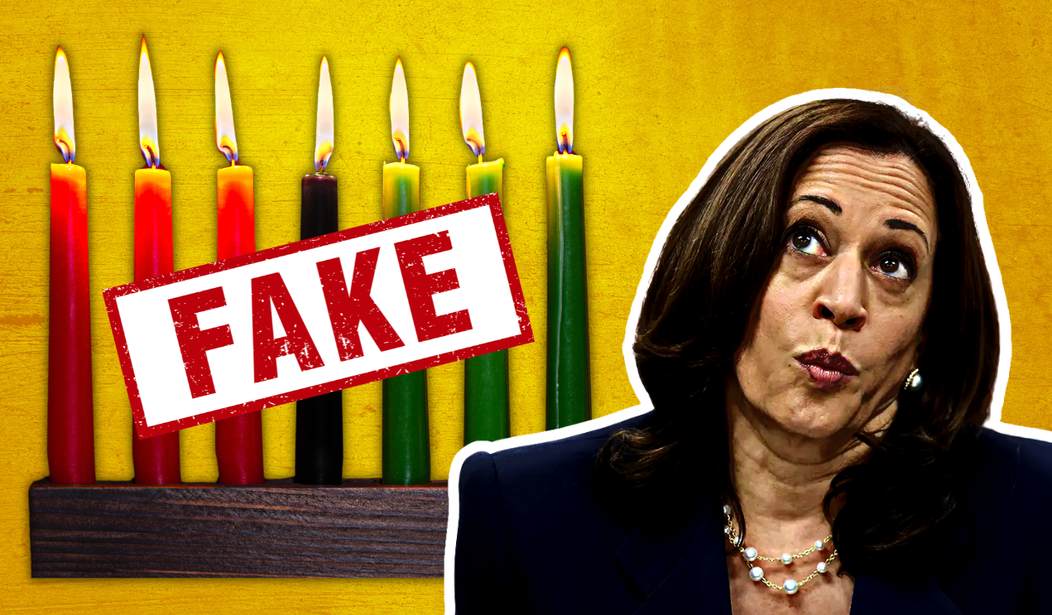


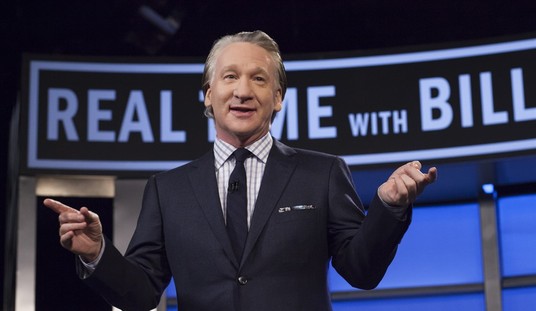
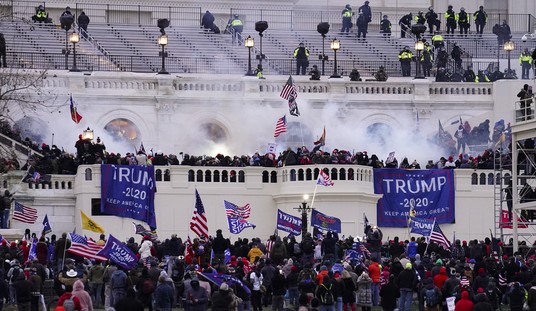

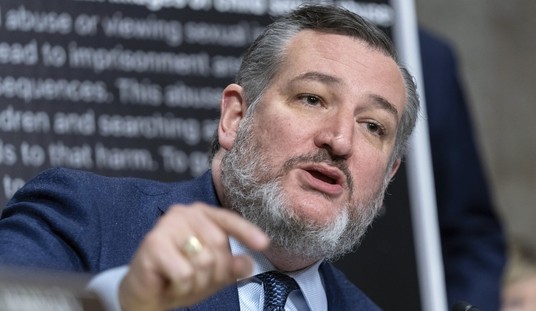
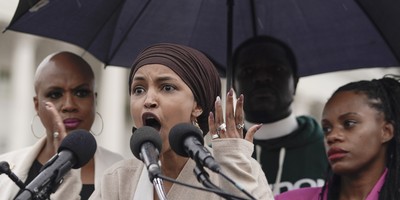
Join the conversation as a VIP Member